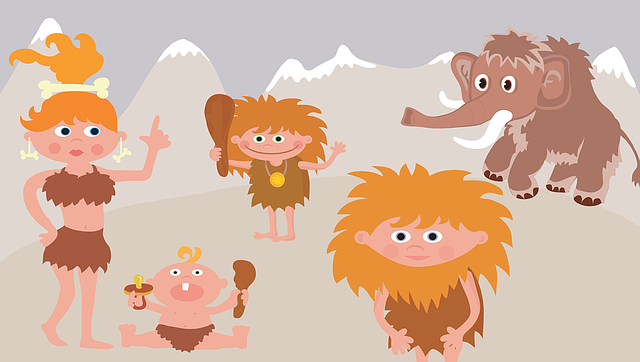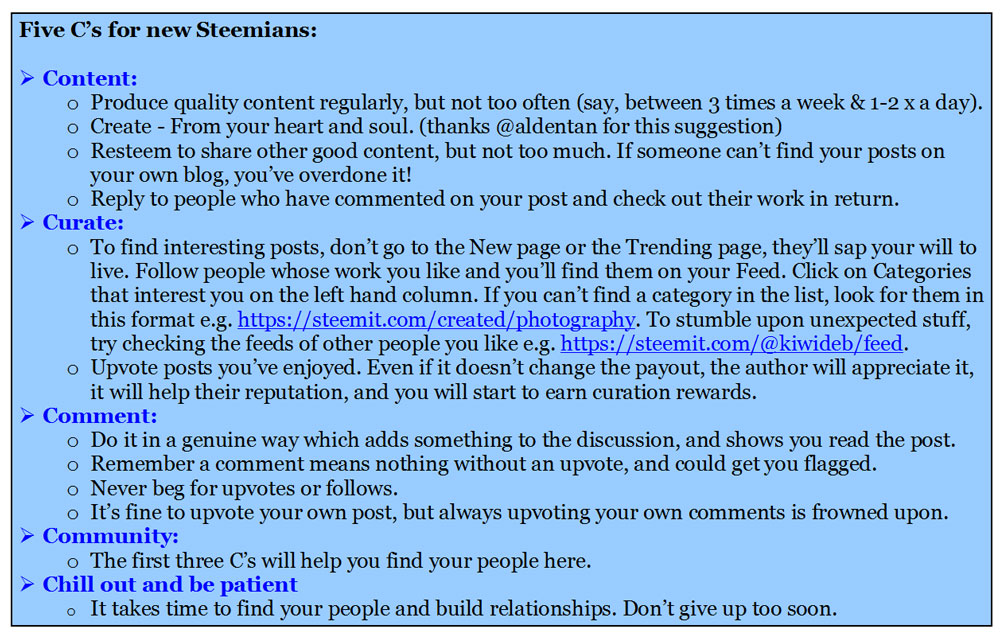Keto & fasting 2 – being metabolically flexible, and how this ties in with what our ancestors ate
Before going on to explain how it all works, let’s put it in the context of ancestral eating.
I think we can all agree that our ancestors would have eaten whatever they could find. There would have been no judgement on whether a food was good or bad – as long as it wasn’t poisonous, all good!
If you haven’t already read it, see post 1 in the series here

Over time, distinctions would have been made about which foods had the best effects, but until fairly recently, we ate everything we could. So the people who were most metabolically flexible would have had the best chance of survival.
What do I mean by metabolically flexible?
I mean - able to digest and utilise all types of macro nutrients. Many foods are a mix of macro nutrients, but just to see how it would work, let’s pretend we found some foods that were primarily just one type.
If the food happened upon today was some tubers, or maybe some berries, the carb “pathways” would have been used. Some of the fuel (in this case, sugars) would have been used straight away, and if we were lucky enough to find more than we needed, some would have been stored as fat, for later.
If the food was primarily protein, protein is great for “repairs and maintenance” but can also be converted to sugars in the liver – which, once again, make great fuel or can be stored as fat.
If it was very fatty food, we’ve hit the jackpot. Fat is needed for building cells, creating hormones and other “repair and maintenance” activities, but can also be directly burnt as fuel. Both dietary fat and stored body fat can be used as fuel, though sugars will usually be used up first. As an added bonus, as a side product of burning fat for fuel, ketones are produced. Ketones can also be used as fuel, and are especially loved by the brain. So fat is a “two-fer”.
And then there would have been days when there was no food. Maybe several days in a row. But now we can access our stored fuel (body fat), so it’s not a problem.
After a few days, to get proteins, our cells start scavenging dead or diseased parts of themselves to get amino acids for repair and maintenance (proteins are made up of amino acids). This process is called autophagy. It’s another “two-fer” – it supplies needed amino acids and keeps the cells clean. Internal recycling, if you like.

So if we can utilise all these pathways, whatever food we find will be able to nourish and fuel us. Going without food for periods of time is a natural process, and not something to be feared, unless it goes on for too long.
Are we flexible now?
I’m going to hazard a guess than even as recently as 100 years ago, humans were still fairly flexible. And I’m going to guess further that it wasn’t until the demonisation of fat, from the 1950s on, that it changed.
Once we stopped eating much fat, we started relying on carbs (sugars) for fuel, and largely lost the ability to utilise fat. Because carbs don’t sustain us for long, we need to eat more frequently, and don’t give our digestive systems any rest periods.
Also, food is so freely available now, that we never need to go without. So unless we deliberately choose to fast, autophagy never takes place.
Why is this a problem?
Here’s an example. Alzheimers Disease is now being called Type 3 diabetes. That’s because the brain cells have become to resistant to insulin, and now the sugars can’t get in to fuel the brain. There is an alternative fuel for the brain – ketones. But if we have lost the ability to burn fat for fuel, and can’t produce ketones, the brain has no source of fuel. That’s one of the reasons why we are seeing more and more of these dreadful brain degenerative diseases.
And what about obesity? If we eat more carbs than we need for fuel at any one time, the sugar goes into the fat cells to be saved for later. That was great when we still had the ability to access the fuel later when there was no food. Now, we don’t often run out of fuel to start with, as food is so plentiful. And if we artificially create a shortage, we have lost the ability to access the fat stores, so the process doesn’t work any more.

And that’s just a couple of examples showing why not being metabolically flexible can cause big problems.
In the next post, we’ll look at the different types of fasting. This includes simply being more careful about how we space out our meals, to get better results.
Thanks for reading
Images from Pixabay.
Check out @woman-onthe-wing’s #makeithealthy project and the new #naturalmedicine project.
Follow me for more health, nutrition, food, lifestyle and recipe posts. For an archive of 2016 & 2017 posts, by category, see my last post of 2017.

Contact me in SteemitChat to ask about one on one nutritional coaching or EFT (Emotional Freedom Technique) sessions by Skype. (Then put a comment on my most recent post, so I know to find you.) Steem, other altcoins or Paypal accepted.
If you’re from New Zealand (Aotearoa) and are looking for other kiwis, use #teamnz as one of your tags // check out other posts with #kiwi or #teamnz tags // follow @teamnz // or join the South Pacific channel on Discord. There is an old list of kiwis on this post.

Woo-hoo! Yay! We adore your work, and we've upvoted your post with some @naturalmedicine love! Your article now has a chance to get curated and featured under the round-up of our blog. We'd love to encourage you to use the tag #naturalmedicine, so we can all find this kind of great knowledge easily on our busy blockchain!
If you're a supporter of all things natural healing, you might like to read our introductory post here. We'd also love to welcome you on Discord here!!
I'll certainly be checking out the tag to see some other quality posts. Yay!
Yay, indeed! I'm so excited about it! - K
You just got a Team NZ upvote!

This is a curation bot for TeamNZ. Please join our AUS/NZ community on Discord.
Why join discord room? Here are 10 reasons why.<
For any inquiries/issues about the bot please contact @cryptonik.
Great job putting this all together @kiwideb,
Two amazing insights here:
The first I recognized as I see the average body size in South Korea increase in with much more than height.
The second I was not aware of by now. In college I studied about how prions changed the Beta Protein structure that influenced degenerative disorders like Alzheimers disease. People were blaming it on eating "bad" beef but I thought there was something more that was making this protein plates change. That was 1997 and I haven't read much about it since but now I can see how a healthy autophagy metabolism would decrease Alzheimers symptoms.
Yes, I agree autophagy will help Alzheimers and other illnesses, but I think even more important is the ketones feeding the brain. I never thought about mad cow disease possibly having another cause. Maybe if the brain was better fed and more resilient, it wouldn't have affected people the same. And of course, another side effect of that was more people becoming vegetarian, which can have all sorts of bad side effects unless done very carefully.
I'm trying to help my wife now with various complications but most of them rooted to gaining weight after taking medicine." She realizes now but can't practically change her eating habits of so many carbs and sugars. It really starts with the way we shop.
In the next post, I want to make some suggestions about how to change from a high carb diet to a higher fat one. It's not easy but worth it. Hopefully some of those ideas will help her. If you drop me a list of some of what she eats, I can maybe address those foods especially.
Great stuff. If only we can follow. I mean practically in our eating. I hope so.
After 3 days of reducing carbs I think I'm already starting to get some improvements.
I might pinch that chart for some later posts!
Great incite with loads of common sense thrown in. Thanks @kiwideb
Yeah, I'm a bit fan of common sense, which is so often sorely lacking!
great article mam awesome nutritional coach so much informative there is really a serious need to educate peeps how system actually works:)
Luckily more people are starting to see how the system works now, or how it doesn't work, for us!
It's funny how people will react when I suggest they fast for 24-48 hours to get into nutritional ketosis quickly.
Usually, it's met with such fear that it takes a lot of discussion and weeks of education before they will even try a 10-12 hour fast.
Once they try one fast they see it's not that hard and we can finally start down the path of changing them from a sugar burner to a fat burner giving them that metabolic flexibility.
It's so true - if we just look to how our ancestors ate - and this can even be as recently as our grandparents or great-grandparents (low fat was not a thing then)- we can see a population that didn't suffer from the same rates of obesity and chronic illness we have now.
Great series @kiwideb! Looking forward to the next installment.
In Peace, Love, and Health.
~T
Yes, even 30 years ago, in the 80s, there were no fat people. So that suggests to me that we still had a level of metabolic flexibility. Or at least, were not overeating to anywhere near the same extent. But the 80s was when the low fat craze really kicked in, and it's been downhill from there :-(
howdy from Texas @kiwideb! brilliant article, loved it!
thank you and God bless!
Thanks! I liked your post today too, about how things changed, for cowboys. Interesting stuff.
howdy this fine Monday @kiwideb! well you are very gracious. compared to your excellent posts mine are a little rough to say the least but they'll get better in time. your's are totally professional!
I usually have very little time so I throw something together at the last minute and hope it makes sense! God bless you guys down there!
To listen to the audio version of this article click on the play image.

Brought to you by @tts. If you find it useful please consider upvoting this reply.